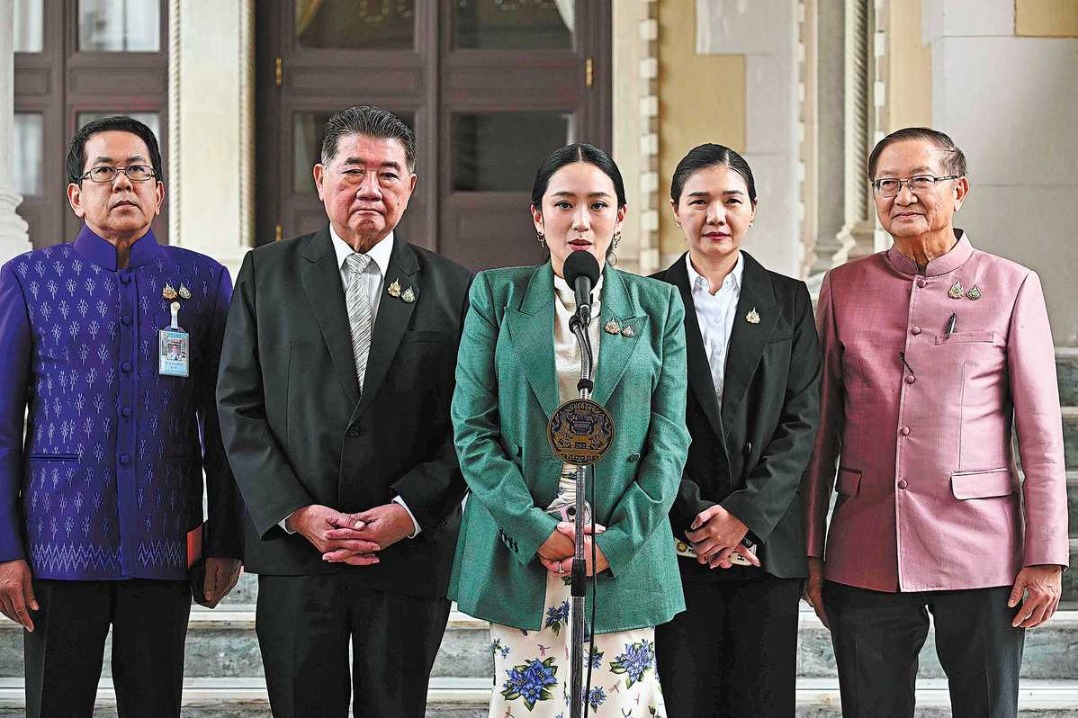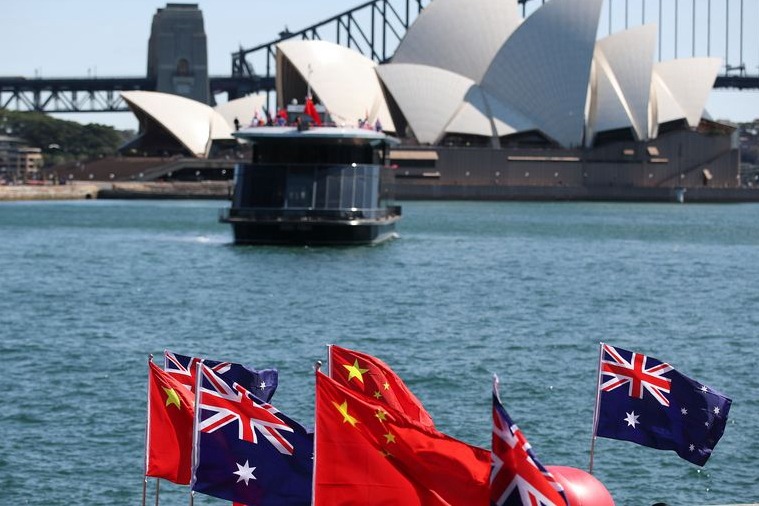Supply chain plan worries Japanese firms


They could face penalties under provision of government's economic security proposal
The Japanese government plans to submit an economic security bill to the country's parliament, the Diet, later this month, according to media in Japan.
The legislation aims to strengthen supply chains, ensure the security of core infrastructure, enhance research and development, and tighten information disclosure on patents.
Japan's business circles and the Komeito party, a junior partner in Japan's ruling coalition, have expressed concerns about the increased oversight powers that the legislation would grant the government.
A provision that uncooperative companies could face penalties is already causing jitters in the Japanese business community.
The provision regarding the supply chain is expected to cover vital parts and products, such as semiconductors, pharmaceuticals, rare earth metals and large-capacity batteries, that would be designated by Japan's Cabinet.
Businesses and private sector researchers could face up to a two-year term in prison if they leak sensitive technologies and undermine safeguards against cyberattacks, according to the draft of the economic security bill, according to The Asahi Shimbun newspaper.
Katanozaka Shinya, vice-chairman of the Japan Business Federation, or Keidanren, asked the Japanese government on Feb 9 to keep the bill's impact on business to a minimum, Japanese public broadcaster NHK reported.
Keidanren wants the scope of the products targeted to be narrowed down as much as possible, with proposals for ensuring freedom of economic activity and maintaining consistency with international rules.
Companies in the energy, water supply, information communications, finance and transportation sectors, as well as the postal service and companies planning to install high-tech equipment, would need to undergo government evaluation concerning the source of materials.
One of the primary hurdles facing the government is deciding which products to designate as vital for a stable supply chain. For example, many pharmaceuticals depend on materials from China, so a blanket ban on such purchases of materials could lead to shortages, The Asahi Shimbun said.
The newspaper warned in an editorial that strict controls could undermine the independence of researchers, weaken the vigor of research and development and impede technological advances, so caution and discreet judgment are needed.
"Claims of national security needs could be used as a justification for not demanding rigorous examinations of policy actions," The Asahi Shimbun's editorial said. "The government should be keenly aware of the risk of this approach harming both the nation's economy and security."
The bill is expected to enable authorities to ensure that the supply chains of certain products are not overly reliant on specific countries.
Japan's emphasis on boosting the resilience of the supply chain came on the heels of US President Joe Biden's order in February last year requiring a review of US supply chains.
On Feb 3, Japan's Cabinet Office released a trade analysis that said the level of Japanese supply reliance on China was about twice the US dependence on China.
Materials from China accounted for more than 50 percent in 1,133 categories of imported goods, or 23 percent of the value of Japan's imports in 2019, according to the analysis report.
"In the event that exports from China are interrupted by a supply shock or shipping delays, it would be difficult for Japan to switch to other sources for many items... and the financial impact would be substantial," the Cabinet Office said.
Xu Changwen, a researcher with the China Foundation for International and Strategic Studies, said that since last year, Japan has played up "economic security" and called it "an urgent matter".
Xu said the crux of the "economic security" is Japan's cooperation with the United States to put restrictions on China.
Da Zhigang, director of the Heilongjiang Academy of Social Sciences' Institute of Northeast Asian Studies, said the business and industrial circles in Japan should know well that following in the footsteps of the US by stretching the security strategy to the economic sphere will do no good for Japan.
China-Japan trade volume hit $371.4 billion in 2021, and the Chinese market has turned out to be an important part in the stability of the Japanese economy, Da said.
Economically, China and Japan are highly complementary, dwarfing the economic complementarity between Japan and the US, Da added.

































